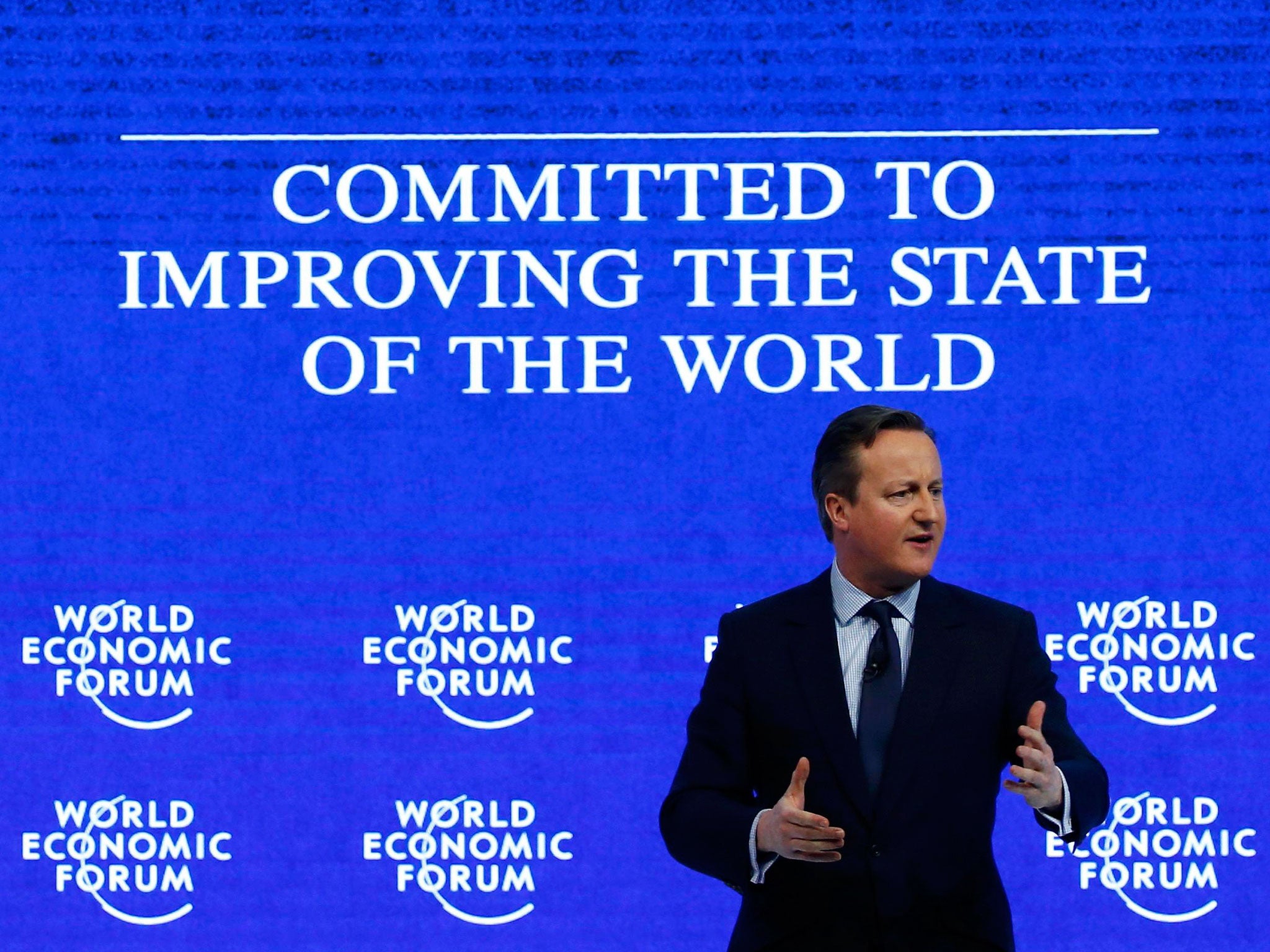EU referendum: European leaders sceptical of David Cameron’s bid for early reforms deal
'I think it will need more time - the discussions only started a short time ago'

David Cameron’s high hopes of securing EU agreement for his reform plans at the 19 February leaders’ summit have been dented after both the French and Dutch prime ministers cast doubt on the ambitious timetable.
Speaking at the World Economic Forum in Davos about the prospect of a breakthrough deal next month for the UK’s demands, Manuel Valls, the French prime minister, said: “I think it will need more time. The discussions only started a short time ago.”
That scepticism was echoed by Mr Valls’ Dutch counterpart Mark Rutte, whose country currently holds the presidency of the EU.
In his own speech to the Swiss conference, Mr Cameron talked up the prospect of an imminent deal, saying: “We’ve made good progress. Are we there yet? No. But there is a prospect of getting there by the February Council. If there is a good deal on the table in February I will take it.”
However, the Prime Minister added that if there was no such breakthrough next month, he would remain “patient” – suggesting discussions could yet continue for months longer.
“I can hold my referendum any time up to the end of 2017,” he said. “It’s much more important to get this right than to rush it.”
It is widely assumed that an agreement next month would be followed by a national referendum on Brexit in June or July. Failure to reach a deal in February could see the referendum pushed back until after the summer.
Downing Street is understood to favour a June or July referendum to avoid the vote being held against the backdrop of the autumn peak for refugee movements – a situation that could be exploited by the ‘Out’ campaign to heighten fears over immigration and security.
Mr Cameron also encouraged industry figures to start making the case loudly for Britain remaining in the EU. “I would encourage you to get out there and talk about this vital debate,” he said.
Following the revelation that the Wall Street bank Goldman Sachs has made a £500,000 donation to the Britain Stronger in Europe lobby group, three other US investment banks with UK operations – JP Morgan, Morgan Stanley and Bank of America – are also considering making contributions.
One source in Davos from the pro-EU campaign acknowledged the potential public relations problem of accepting funding from unpopular banks, but pointed out that some large hedge funds have also been financial backers of the Out campaign.
Join our commenting forum
Join thought-provoking conversations, follow other Independent readers and see their replies
Comments